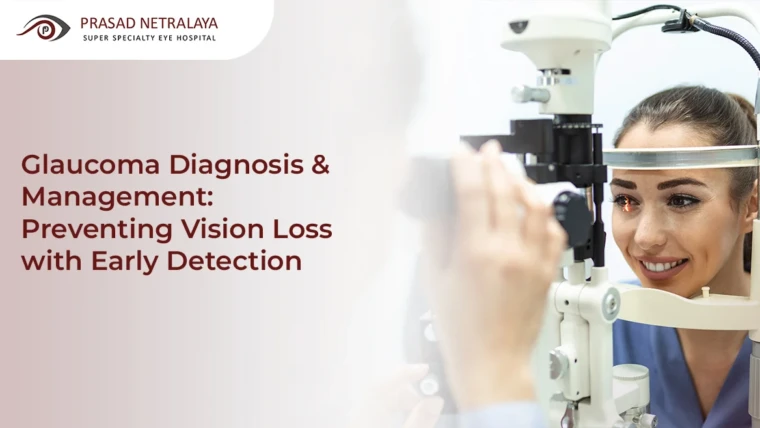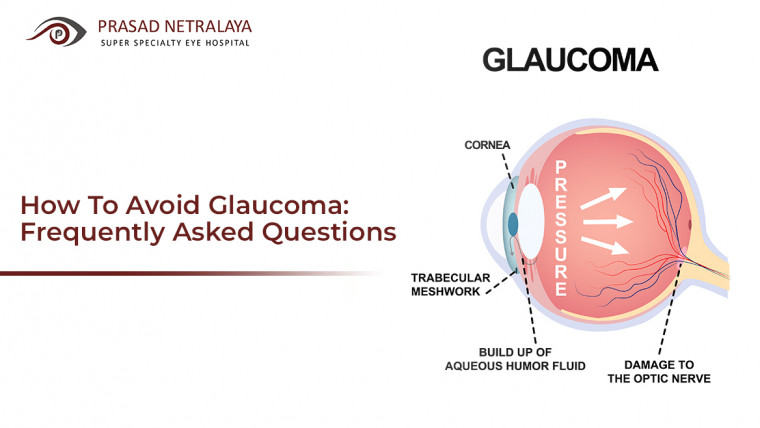Glaucoma is a blanket term for a group of eye ailments that affect the optic nerve, often leading to vision loss. This happens because of a fluid build-up in the front part of the eye, exerting pressure on the eye and causing the nerve to deteriorate over time.
While it is more prevalent among people over 50, it can still occur at any age, most often due to inherited genes. It is advised to get regular consults and check-ups at the most minor signs of discomfort, especially since vision loss due to glaucoma is irreversible but can be avoided or controlled if detected early.
Table of Contents
Causes & Risk Factors
Owing to its tendency to sneak up on you without clear signs and symptoms, it is important to recognize the following risk factors to understand the odds of developing this ailment:
- Age over 50 years
- High intraocular pressure
- Unusually thin corneas
- Genetic history of glaucoma
- Medical conditions like diabetes, heart diseases, high blood pressure, sickle cell anemia
- Excessive near- or farsightedness
Types of Glaucoma
Open-Angle Glaucoma
One of the most prevalent kinds, open-angle glaucoma occurs when the trabecular meshwork is partially blocked, yet the drainage angle formed by the cornea and iris remains open. This results in the rise of intraocular pressure and damage to the optic nerve. This is such a slow process that your vision may get compromised even before you realize there’s a problem.
Angle-Closure Glaucoma
Also known as narrow-angle glaucoma, this rare type develops quite suddenly when the angle between the iris and the cornea is too narrow. It results in the drainage canals getting clogged, preventing aqueous fluid from exiting the eye and leading to a sharp increase in ocular pressure. Common symptoms of acute-angle glaucoma include eye discomfort and severe headaches that may require immediate medical care.
Normal-Tension Glaucoma
In this rather odd situation, blind spots or blurred vision take place even though the eye pressure is within the normal range. Experts are not absolutely certain about the cause, but some hypotheses include extra-sensitive optic nerve or lack of blood flow to the eye.
Pigmentary Glaucoma
This type of glaucoma is quite rare and is often a consequence of a condition called pigment dispersion syndrome. Pigment granules at the rear end of the iris break off and fall into the intraocular fluid, blocking the drainage canals and increasing the eye pressure.
Congenital Glaucoma
Even though it affects the elderly the most, sometimes children can be born with an abnormality in the angle of their eyes which hinders normal fluid outflow. This is called congenital glaucoma, or even infantile or pediatric glaucoma, and is often a condition that is inherent in families. Cloudy eyes, excessive weeping, and light sensitivity are some common signs of congenital glaucoma.
Treatment Plans for Glaucoma
Glaucoma, if left untreated, will lead to permanent blindness. With regulated treatments and effective care, your eye doctor may be able to slow down degeneration and possible vision loss.
Glaucoma treatments include:
Eye drops
Prescription eye drops relieve ocular pressure by reducing fluid extraction and increasing drainage. There may be possible side effects to these medications, so consult an eye expert about your medical history before administering any medication.
Laser treatment
Another possible way is to use a laser to extract the fluid out of the eye. This technique is often used as a supplement to the use of eye drops rather than a replacement and is usually only effective for up to five years.
Surgery
Surgery is another option for lowering ocular pressure. It is more intrusive than drops or lasers, but it can reduce and control ocular pressure more efficiently. Again, while surgery can delay the loss of eyesight, it cannot cure glaucoma or restore lost vision.
At Prasad Netralaya, we have the best eye doctors in Mangalore to give you the most effective treatment possible. If you have even mild discomfort or signs of potential glaucoma, it is imperative you consult an expert immediately, or risk losing your vision.
Visit our website to schedule a consultation or call us on our toll-free number 1800-4251-919 or our mobile no. 09513576565 to book a quick appointment. Consult the best eye specialists in Mangalore for a complete diagnosis and treatment plan— your eyes will be grateful to you!
Dr. Vikram Jain, M.S. had his medical training (MBBS) from Kasturba Medical College, Mangalore, India. He did his master’s in Ophthalmic surgery from Kasturba Medical College, Manipal. He currently manages the Glaucoma department of Prasad Netralaya hospital.



